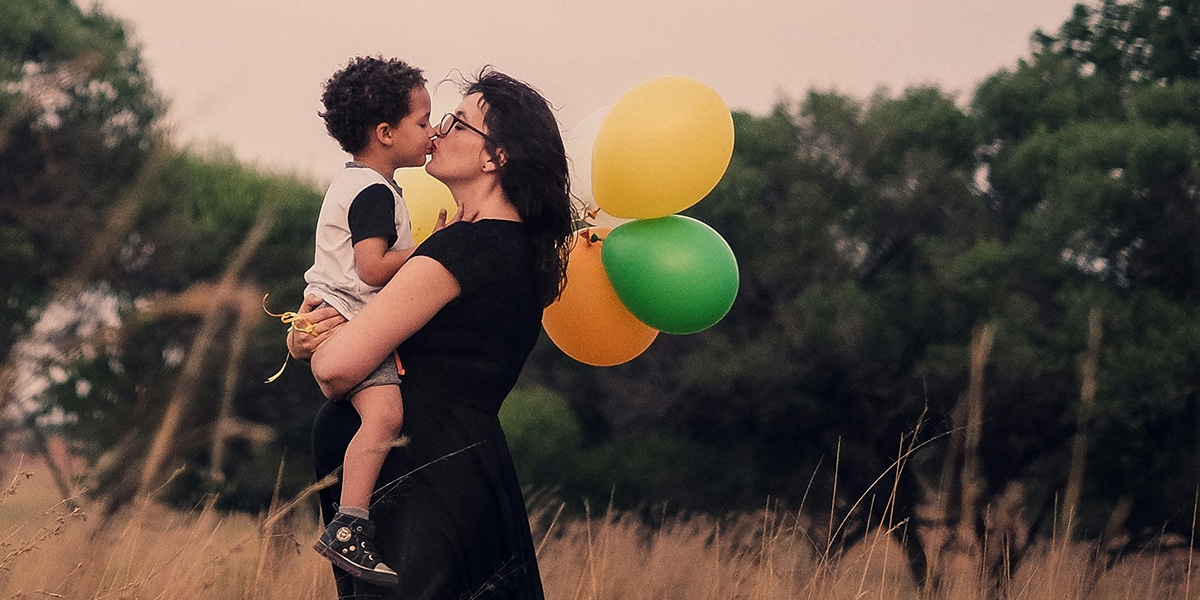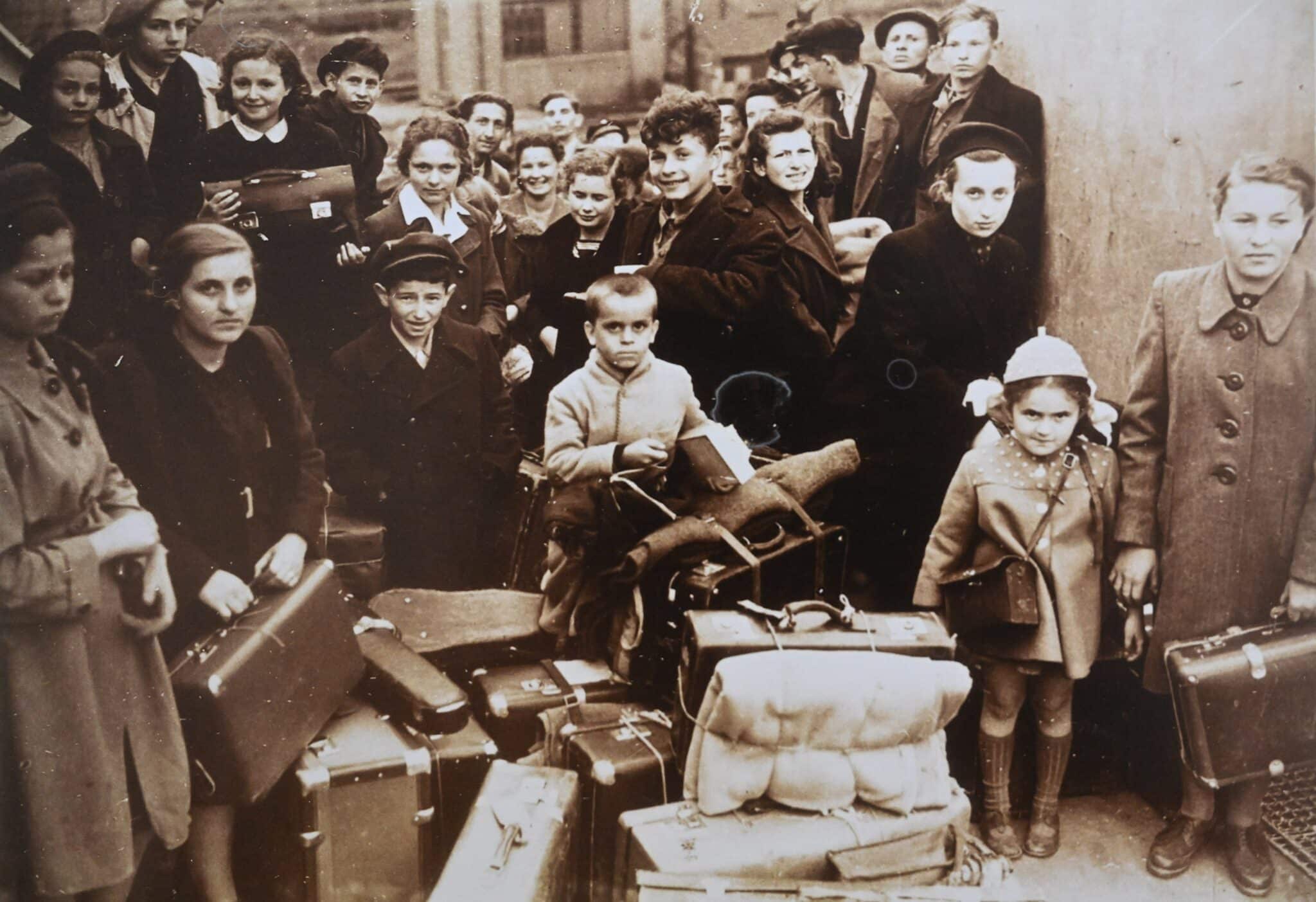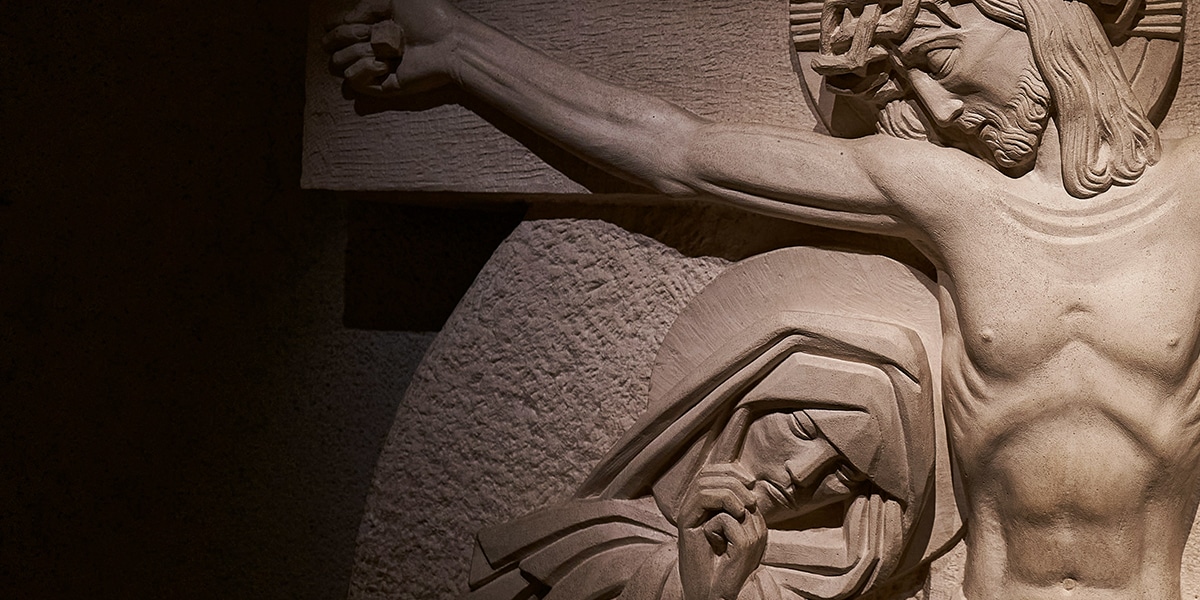(OSV News) — The viral internet commercial sounded real: the voice of Cardinal Carlos Aguiar Retes, archbishop of Mexico City, endorsing a miracle drug that had cured him of diabetes.
But the commercial — like the cure itself — was fake. As Desde La Fe, the archdiocese’s newspaper reported in January, fraudsters had made a “deepfake” to simulate the cardinal’s voice, using advanced software loosely categorized as artificial intelligence, or AI.
The criminal use of AI-generated content is among the most disturbing advances in digital technology. In June 2023, the FBI issued a warning about AI “deepfakes” that transform a real victim’s benign images into explicit “true-to-life” content to target him or her for harassment and sexual extortion. Sometimes the victims are minors. Other times the victims are non-consenting adults, including popular figures such as the singer-songwriter Taylor Swift.
Experts also note that technological developments with AI can bring profound changes for the good — but they emphasize the urgent need for applied Catholic ethics and social thought. The Vatican itself has made the topic a priority, with the Vatican’s Dicastery of Culture and Education and its Center for Digital Culture playing a lead role in bringing together business leaders, philosophers and Catholic thinkers to discuss the ethics of AI.
Catherine Moon, a postdoctoral fellow at the University of Virginia’s Institute for Advanced Studies in Culture, told OSV News the technologies are double-edged.
“The analogy to fire is probably a good one,” she said. “It can bring light and warmth or it can bring destruction and darkness.”
Moon is a member of the AI Research Group, a North American group of theologians, philosophers and ethicists collaborating at the invitation of the Vatican’s Center for Digital Culture. She noted technological advances “already pervade every aspect and sphere of (our) life.” Data analytics and natural language processing are already integrated into machine learning and algorithms, the technical names for the computer programs that shape 21st-century life.
“It shapes the news we see on our phone, the media we are recommended to watch, the goods we ‘ought’ to buy, the people we ‘ought’ to date, whether we are considered at risk for illness, eligible for a loan or even a future threat to society,” Moon said.
AI’s accelerated revolution
Natural language processing technology helps people with certain disabilities communicate and also translates difficult or rarely studied human languages. Researchers at the University of Southern California have launched a project called Greek Room to automate labor-intensive aspects of Bible translation, like checking for spelling and consistency, for languages that lack resources.
Self-driving cars with no human backup could make taxi driving and truck driving obsolete. Even computer programmers’ work is being simplified by new AI systems. In many industries, AI means fewer workers are needed and more people laid off as a result.
“It’s about making human labor more efficient,” said Brian Patrick Green, director of technology ethics at the Markkula Center for Applied Ethics at Santa Clara University in California. “The direct impact on people’s lives is going to appear in the form of their jobs changing.”
“AI is making science go a lot faster,” he told OSV News. “It’s giving people the ability to find patterns where there were not patterns noticed before. It allows modeling much more complex behavior. It allows analyzing much larger data sets.”
AlphaFold, an AI project by Alphabet subsidiary DeepMind, has made highly accurate predictive models of the three-dimensional protein structures of the human body, and of almost all cataloged proteins known to science.
The project rapidly accelerates more than five decades of expensive and time-consuming research that aims to inform new drugs and therapies, with repercussions for sustainability, food insecurity, drug development and disease treatment.
While AI now means algorithms or machine learning systems that are designed for specific tasks, some researchers hope to develop a hypothetical artificial general intelligence, a system that replicates human ability to think in a general way.
“Basically everything that human intelligence can do that can be automated probably will be,” Greene said. “It’s a matter of how long it’s going to take.”
“We shouldn’t assume that everything can be automated,” he added. While some philosophers have reckoned that human distinctiveness rests in the ability to think and reason logically, Green posited that theological traditions help people realize “what makes us distinctively human is our ability to love.”
Existing groundwork for AI ethics
Any response to AI can find a foundation in Catholic social teaching, famously emphasized in Pope Leo XIII’s 1891 encyclical on capital and labor “Rerum Novarum.”
“The tradition of Catholic social teaching started as a kind of a response to the industrial revolution,” said Green, who like Moon is a member of the Vatican’s AI Research Group. “It’s not just Catholic teaching on society. It’s a Catholic teaching on society as a response to technology.”
Green said Catholics can understand Catholic social teaching as “teaching in response to technology and as technology continues to change.”
Moon agreed.
“The Catholic tradition and Catholic social teaching has rich, relevant, and necessary resources for engaging both the contemporary discourse surrounding AI and new technology,” she said, particularly with reference to achieving “the common good and human flourishing.”
But she made clear serious concerns are at play. AI could worsen the concentration of wealth. A biased AI could marginalize vulnerable people who seek social services, health care or banking services. The technology itself can be resource-intensive with damaging environmental effects. There could be a “moral de-skilling” in which people excessively defer to the authority of algorithms and refuse to make their own judgments and choices. Vital human relationships could be mediated through AI and optimized purely for the acquisition of wealth or personal pleasure.
Others working on the Catholic response to AI include Pope Francis himself. His Jan. 1, 2024, message for the 57th World Day of Peace praised human intelligence as a gift of God and welcomed achievements in science and technology.
But he warned algorithms and AI technology are not morally neutral but have their own assumptions. They can reproduce the “injustices and prejudices” of their societies. AI-guided autonomous weapons, he warned, are never “morally responsible subjects.” AI systems can be used to surveil or categorize individuals into vast social credit schemes, while they also can set outcomes for mortgage and job applications and applications for asylum.
The pope also praised AI-driven innovations in agriculture, education and culture that could mean “an improved level of life for entire nations and peoples, and the growth of human fraternity and social friendship.”
Pope Francis stressed the importance of developing international organizations and new treaties to regulate AI technologies and establish best practices. He welcomed responsible action and respect for “such fundamental human values as ‘inclusion, transparency, security, equity, privacy, and reliability.’”
Emerging questions and guidelines
Those values were a focus of shared agreement in the 2020 Rome Call for AI Ethics, signed by the Vatican’s Pontifical Academy for Life alongside world leaders like the presidents of IBM and Microsoft.
Bishop Paul Tighe, the Vatican’s secretary for the Dicastery for Culture and Education’s culture section and a major figure in Catholic engagement with the new technology, helped bring together the members of the Center for Digital Culture’s AI Research Group, which began meeting in 2020.
The group has produced the book “Encountering Artificial Intelligence: Ethical and Anthropological Investigations,” which is the first in a planned series of publications about the challenges of AI and the preservation of human values.
Bishop Tighe, writing in the book’s foreword, said several Vatican curial departments have given their attention to AI and there is a clear consensus about “the need for a rigorous theological and philosophical consideration of the likely social, economic and cultural impact of the technology.” He listed some of the questions existing discussions converge on: “How will we ensure that technologies are truly promoting human progress? What is it that distinguishes humans from machines? What are the values and practices that promote social and human flourishing?”
Jordan J. Wales, one of the book’s editors and a theology professor at Hillsdale College in Michigan, called the book “a rich analysis and application of the Catholic tradition to these problems.” One of its running themes, he told OSV News, is a favorite of Pope Francis: the culture of encounter between persons.
Wales said the best the Catholic Church can do, as it appears to be doing now, is to “point out some possibilities and perils” and work to cultivate theological engagement with developing topics, so that “we won’t be caught unawares when their effects become more apparent.”
“If that process is not undertaken with sensitivity and insight and a strong effort to both collaborate with people involved with technology and to understand deeply how the technology works, then we won’t be able to respond to the situation as it is,” he said.
Wales said a slow approach from the church could be best to “develop a deep sense of what that situation is.”
He advised patience, cautioning against “the illusion of hype” and claims that a new technology has fundamentally altered the world. A slower response can aid “accuracy and insight” into how the church applies its long-held truths, while avoiding impulsiveness.
“Our engagement with the world can be drastically altered,” Wales said. “But the stakes of what is necessary for a good human life actually have not changed.”
By Kevin J. Jones | OSV News







News & Commentary
Catholic Social Teaching Has a Lot to Say About AI, Experts Say
(OSV News) — The viral internet commercial sounded real: the voice of Cardinal Carlos Aguiar Retes, archbishop of Mexico City, endorsing a miracle drug that had cured him of diabetes.
But the commercial — like the cure itself — was fake. As Desde La Fe, the archdiocese’s newspaper reported in January, fraudsters had made a “deepfake” to simulate the cardinal’s voice, using advanced software loosely categorized as artificial intelligence, or AI.
The criminal use of AI-generated content is among the most disturbing advances in digital technology. In June 2023, the FBI issued a warning about AI “deepfakes” that transform a real victim’s benign images into explicit “true-to-life” content to target him or her for harassment and sexual extortion. Sometimes the victims are minors. Other times the victims are non-consenting adults, including popular figures such as the singer-songwriter Taylor Swift.
Experts also note that technological developments with AI can bring profound changes for the good — but they emphasize the urgent need for applied Catholic ethics and social thought. The Vatican itself has made the topic a priority, with the Vatican’s Dicastery of Culture and Education and its Center for Digital Culture playing a lead role in bringing together business leaders, philosophers and Catholic thinkers to discuss the ethics of AI.
Catherine Moon, a postdoctoral fellow at the University of Virginia’s Institute for Advanced Studies in Culture, told OSV News the technologies are double-edged.
“The analogy to fire is probably a good one,” she said. “It can bring light and warmth or it can bring destruction and darkness.”
Moon is a member of the AI Research Group, a North American group of theologians, philosophers and ethicists collaborating at the invitation of the Vatican’s Center for Digital Culture. She noted technological advances “already pervade every aspect and sphere of (our) life.” Data analytics and natural language processing are already integrated into machine learning and algorithms, the technical names for the computer programs that shape 21st-century life.
“It shapes the news we see on our phone, the media we are recommended to watch, the goods we ‘ought’ to buy, the people we ‘ought’ to date, whether we are considered at risk for illness, eligible for a loan or even a future threat to society,” Moon said.
AI’s accelerated revolution
Natural language processing technology helps people with certain disabilities communicate and also translates difficult or rarely studied human languages. Researchers at the University of Southern California have launched a project called Greek Room to automate labor-intensive aspects of Bible translation, like checking for spelling and consistency, for languages that lack resources.
Self-driving cars with no human backup could make taxi driving and truck driving obsolete. Even computer programmers’ work is being simplified by new AI systems. In many industries, AI means fewer workers are needed and more people laid off as a result.
“It’s about making human labor more efficient,” said Brian Patrick Green, director of technology ethics at the Markkula Center for Applied Ethics at Santa Clara University in California. “The direct impact on people’s lives is going to appear in the form of their jobs changing.”
“AI is making science go a lot faster,” he told OSV News. “It’s giving people the ability to find patterns where there were not patterns noticed before. It allows modeling much more complex behavior. It allows analyzing much larger data sets.”
AlphaFold, an AI project by Alphabet subsidiary DeepMind, has made highly accurate predictive models of the three-dimensional protein structures of the human body, and of almost all cataloged proteins known to science.
The project rapidly accelerates more than five decades of expensive and time-consuming research that aims to inform new drugs and therapies, with repercussions for sustainability, food insecurity, drug development and disease treatment.
While AI now means algorithms or machine learning systems that are designed for specific tasks, some researchers hope to develop a hypothetical artificial general intelligence, a system that replicates human ability to think in a general way.
“Basically everything that human intelligence can do that can be automated probably will be,” Greene said. “It’s a matter of how long it’s going to take.”
“We shouldn’t assume that everything can be automated,” he added. While some philosophers have reckoned that human distinctiveness rests in the ability to think and reason logically, Green posited that theological traditions help people realize “what makes us distinctively human is our ability to love.”
Existing groundwork for AI ethics
Any response to AI can find a foundation in Catholic social teaching, famously emphasized in Pope Leo XIII’s 1891 encyclical on capital and labor “Rerum Novarum.”
“The tradition of Catholic social teaching started as a kind of a response to the industrial revolution,” said Green, who like Moon is a member of the Vatican’s AI Research Group. “It’s not just Catholic teaching on society. It’s a Catholic teaching on society as a response to technology.”
Green said Catholics can understand Catholic social teaching as “teaching in response to technology and as technology continues to change.”
Moon agreed.
“The Catholic tradition and Catholic social teaching has rich, relevant, and necessary resources for engaging both the contemporary discourse surrounding AI and new technology,” she said, particularly with reference to achieving “the common good and human flourishing.”
But she made clear serious concerns are at play. AI could worsen the concentration of wealth. A biased AI could marginalize vulnerable people who seek social services, health care or banking services. The technology itself can be resource-intensive with damaging environmental effects. There could be a “moral de-skilling” in which people excessively defer to the authority of algorithms and refuse to make their own judgments and choices. Vital human relationships could be mediated through AI and optimized purely for the acquisition of wealth or personal pleasure.
Others working on the Catholic response to AI include Pope Francis himself. His Jan. 1, 2024, message for the 57th World Day of Peace praised human intelligence as a gift of God and welcomed achievements in science and technology.
But he warned algorithms and AI technology are not morally neutral but have their own assumptions. They can reproduce the “injustices and prejudices” of their societies. AI-guided autonomous weapons, he warned, are never “morally responsible subjects.” AI systems can be used to surveil or categorize individuals into vast social credit schemes, while they also can set outcomes for mortgage and job applications and applications for asylum.
The pope also praised AI-driven innovations in agriculture, education and culture that could mean “an improved level of life for entire nations and peoples, and the growth of human fraternity and social friendship.”
Pope Francis stressed the importance of developing international organizations and new treaties to regulate AI technologies and establish best practices. He welcomed responsible action and respect for “such fundamental human values as ‘inclusion, transparency, security, equity, privacy, and reliability.’”
Emerging questions and guidelines
Those values were a focus of shared agreement in the 2020 Rome Call for AI Ethics, signed by the Vatican’s Pontifical Academy for Life alongside world leaders like the presidents of IBM and Microsoft.
Bishop Paul Tighe, the Vatican’s secretary for the Dicastery for Culture and Education’s culture section and a major figure in Catholic engagement with the new technology, helped bring together the members of the Center for Digital Culture’s AI Research Group, which began meeting in 2020.
The group has produced the book “Encountering Artificial Intelligence: Ethical and Anthropological Investigations,” which is the first in a planned series of publications about the challenges of AI and the preservation of human values.
Bishop Tighe, writing in the book’s foreword, said several Vatican curial departments have given their attention to AI and there is a clear consensus about “the need for a rigorous theological and philosophical consideration of the likely social, economic and cultural impact of the technology.” He listed some of the questions existing discussions converge on: “How will we ensure that technologies are truly promoting human progress? What is it that distinguishes humans from machines? What are the values and practices that promote social and human flourishing?”
Jordan J. Wales, one of the book’s editors and a theology professor at Hillsdale College in Michigan, called the book “a rich analysis and application of the Catholic tradition to these problems.” One of its running themes, he told OSV News, is a favorite of Pope Francis: the culture of encounter between persons.
Wales said the best the Catholic Church can do, as it appears to be doing now, is to “point out some possibilities and perils” and work to cultivate theological engagement with developing topics, so that “we won’t be caught unawares when their effects become more apparent.”
“If that process is not undertaken with sensitivity and insight and a strong effort to both collaborate with people involved with technology and to understand deeply how the technology works, then we won’t be able to respond to the situation as it is,” he said.
Wales said a slow approach from the church could be best to “develop a deep sense of what that situation is.”
He advised patience, cautioning against “the illusion of hype” and claims that a new technology has fundamentally altered the world. A slower response can aid “accuracy and insight” into how the church applies its long-held truths, while avoiding impulsiveness.
“Our engagement with the world can be drastically altered,” Wales said. “But the stakes of what is necessary for a good human life actually have not changed.”
By Kevin J. Jones | OSV News